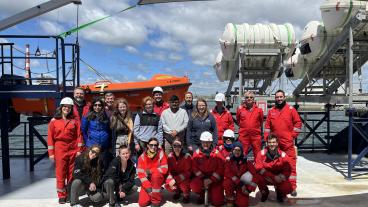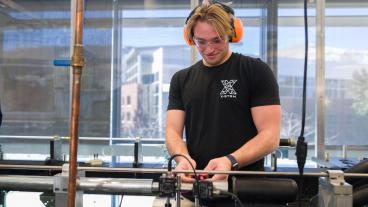Mines has received $2.1 million from the Department of Energy to fund three projects led by faculty in the interdisciplinary Nuclear Science and Engineering Program.
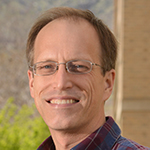
Jensen
Mark Jensen
Grandey Chair in Nuclear Science and Engineering, Chemistry Professor
Jensen has been awarded $800K from the DOE’s Nuclear Energy University Programs to identify and overcome kinetic barriers to separating the transuranic actinide elements americium and curium from fission product lanthanides.
Lowering the transuranic content of nuclear waste would increase the capacity of waste repositories. Although new separation processes that can remove americium and curium are under development, they are often too slow to be efficient and cost-effective. Jensen is working with Chemistry Assistant Professor Shubham Vyas and Artem Gelis, a chemist at Argonne National Laboratory, to understand and overcome the kinetic bottlenecks that slow down an important new extraction process known as ALSEP.
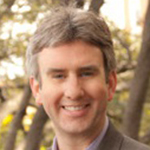
Deinert
Mark Deinert
Mechanical Engineering Associate Professor
Deinert has been awarded $800K through NEUP to develop an intuitive web-based tool that will allow technical and non-technical audiences to compare different energy generation options—nuclear, solar, wind, natural gas, coal, and biomass systems—by their cost, carbon intensity, land and water use, capacity, and reliability. Users will also be able to combine nuclear options with specific back-end fuel cycle options such as onsite storage, geological disposal, or reprocessing.
An application programming interface, or API, will also be developed to allow third-party developers to build custom tools for education, nonprofit use, or policy analysis. Deinert’s team also includes postdoctoral researcher Andrew Osborne and Tim Kaiser, director of research and high-performance computing at Mines.
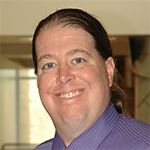
King
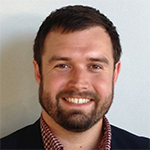
Van Bossuyt
Jeffrey King
Metallurgical and Materials Engineering Associate Professor
Douglas Van Bossuyt
Mechanical Engineering Assistant Professor
King and co-PI Van Bossuyt have been awarded $500K through NEUP and DOE’s Nuclear Energy Enabling Technologies program, in conjunction with DOE’s Nuclear Science User Facilities. The award includes $2M budgeted to Idaho National Laboratory to support the project, with irradiation and post-irradiation examinations using the lab’s Advanced Test Reactor.
The project will study how stainless steel and Inconel alloys, produced using a range of additive manufacturing techniques, perform when irradiated. The team will collect and measure specimens for tensile and yield strength, elasticity, ductility, thermal conductivity and thermal diffusivity. A subset of the specimens will be irradiated at the Advanced Test Reactor, and another subset will be thermally aged at Mines. Both sets of samples will again be subjected to thermo-mechanical testing and micro-structural characterization and the results compared to determine the changes caused by irradiation.
Additive manufacturing offers the potential to significantly enhance the production of nuclear components and fuels; however, there is relatively little information on the performance of additively manufactured parts during irradiation in a nuclear reactor environment. This study will offer insight into the viability of additively manufactured parts for nuclear reactor applications, identify key areas of concern, and provide data for future computational model development.
Contact:
Mark Ramirez, Communications Manager, College of Applied Science & Engineering | 303-384-2622 | ramirez@mines.edu
Kathleen Morton, Digital Media and Communications Manager, Colorado School of Mines | 303-273-3088 | kmorton@mines.edu

